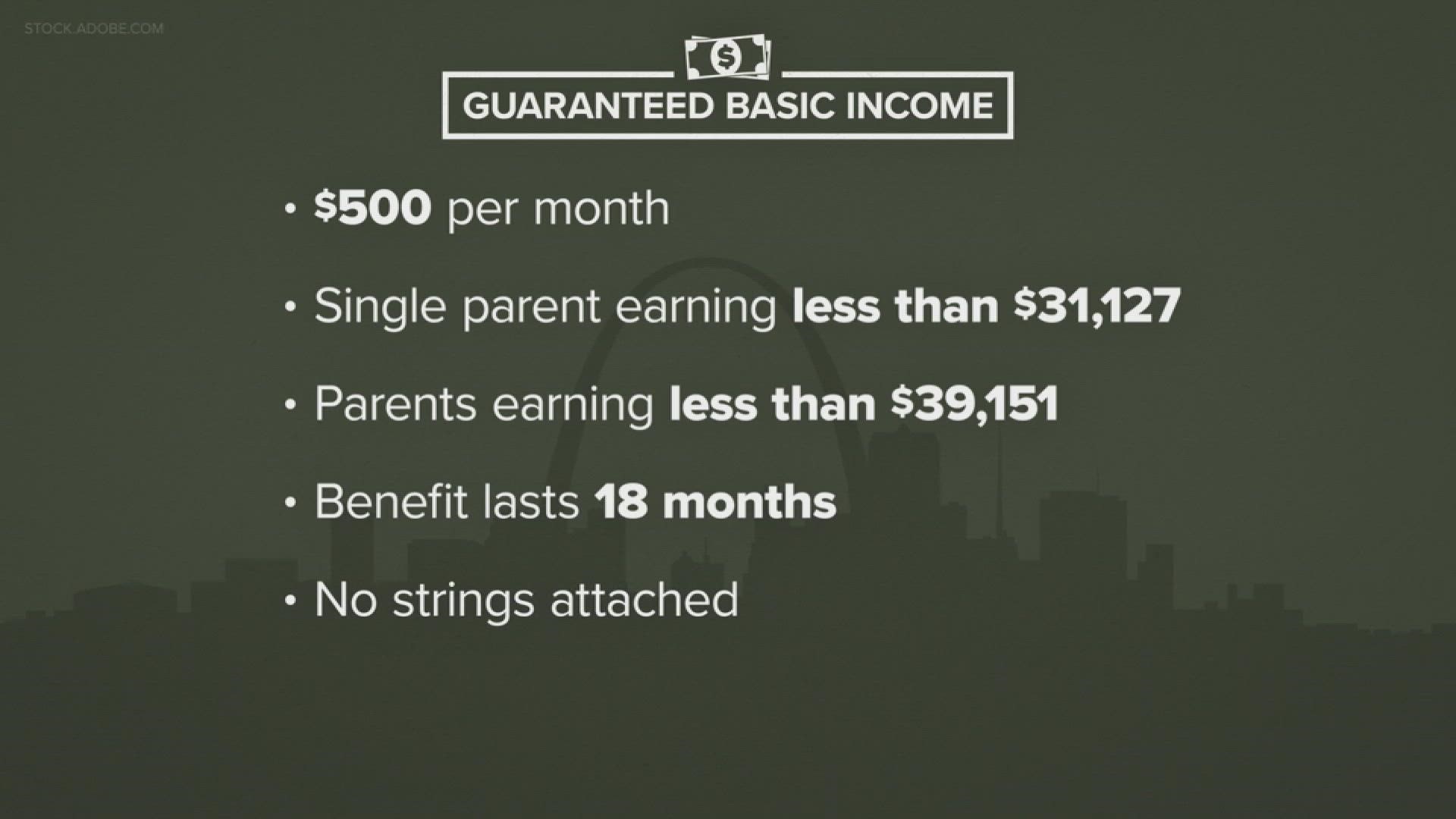ST. LOUIS — More than 400 families living in poverty will soon see direct cash payments from the City of St. Louis for at least a year and a half under a new bill approved by the St. Louis Board of Aldermen (BOA).
The BOA on Tuesday approved a bill to allocate millions of dollars in American Rescue Plan Act (ARPA) funds and includes $5 million on a guaranteed basic income pilot program for parents living in poverty.
The bill now heads to Mayor Tishaura Jones' desk for final approval.
Jones has signified support for guaranteed income programs. She was one of dozens of "Mayors for a Guaranteed Income," including mayors from cities such as Los Angeles, Chicago, Denver, San Francisco and New Orleans.
Under the plan approved by the board of aldermen, approximately 440 St. Louis households will receive $500 monthly payments.
Under the proposal, the funds would only be issued to qualifying parents with public school children under age 18 in households at or below 170% of the federal poverty line.
This means a single parent earning less than $31,127 or a couple making less than $39,151 could qualify. Applicants must also show some proof they suffered economic hardship during the pandemic to qualify.
The families would have to report the additional funds as income, Alderwoman Shameem Clark Hubbard said last week after sponsoring the bill. It remains unclear if the city can eventually secure special waivers from the state or federal government to shield that income from taxes.
The application window has not yet opened and the city has yet to explain how people can sign up for benefits. A spokesman for the mayor's office said the city will hold a competitive bidding process before setting up the application and benefit distribution process.
During the final stages of debate on Tuesday afternoon, several members of the Board of Aldermen raised questions or concerns over a lack of transparency in the program in selecting the people who will receive the benefits and in tracking the use of public funds.
"What I want is the information, how it's spent," Alderwoman Sharon Tyus of the First Ward said. She was the lone member to vote against the bill, which included $52 million in spending on a number of other unrelated programs.
"In my ward, everybody who I talked to said they did not know anyone who got the first 500," Tyus said.
"I'm still trying to figure out where the last $500 went to," 23rd Ward Alderman Joe Vaccaro said on the chamber floor.
Advocates at Missouri Jobs with Justice claim most people in poverty spent stimulus funds on basic needs like gas, groceries, or basic bills.
Aldermen Tom Oldenburg pointed to the fine print in their study which found "more than 33% of money was withdrawn through an ATM or transferred to another account."
"There is really no way to track that after the fact, right? Other than to follow up in a survey," Oldenburg asked.
"Absolutely," Clark Hubbard replied. "And believing them."
Vaccaro pointed to data from the U.S. Census that shows roughly 57,400 people live in poverty in St. Louis and questioned how the city will dole out the funds.
"Who's going to win the lottery? What are they gonna have like a drawing?" he asked.
Clark Hubbard argued the small trial balloon should still be allowed to proceed even if there may not be enough funds to go around for everyone.
"There is no program on earth that services everybody, that qualifies for everybody that apply for it," she responded. "None. All the way down to the food lines. When we have food lines, we have to say, 'Hey, we got to cut it off right here.' So that means you don't do anything for anybody? Or you don't believe in anything for anybody?"
Over the years, a universal basic income has been proposed by Republicans like Richard Nixon, libertarian economists like Milton Friedman and independent politicians like Andrew Yang, in part as a method to create an off-ramp to help wean people in poverty off of other costly government programs.
Census data shows nearly one in five people in St. Louis, or roughly 57,400 residents, live in poverty. That's nearly twice the national average.
If the guaranteed income plan is successful, Mayor Jones has suggested it could expand to become a broader part of the city's official policy to combat poverty.
The bill also allocates $13 million to expand Federally Qualified Health Centers, $13.6 million for housing stabilization and $6 million for youth and juvenile diversion programming.
To watch 5 On Your Side broadcasts or reports 24/7, 5 On Your Side is always streaming on 5+. Download for free on Roku or Amazon Fire TV.

